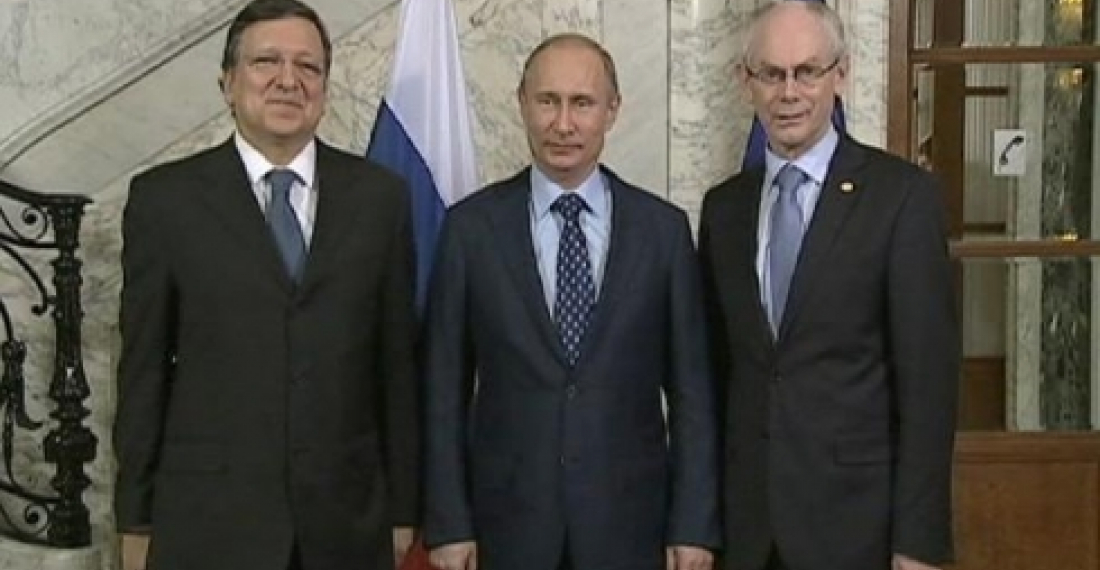The Caucasus was on the agenda at the 30th EU-Russia summit which was held in brusselws on 20-21 December. Russian president Vladimir Putin travelled to brussels for the meeting with the president of the EU Council Herman Van Rumpuy and the president of the European Commission Jose Manuel Barroso. An EU statement said that the agenda addressed a wide range of bilateral issues, covering political and economic matters and strategic perspectives for the EU-Russia relationship.
Following the meeting, European Council president van Rumpuy made the following statement:
"As regards our Common Neighbourhood, I highlighted the need to achieve stability and security as well as democracy and a market-oriented economy. This is the aim of EU's support within the Eastern Partnership Programme, especially as regards to Ukraine, Moldova and Georgia. We welcome that the elections in Georgia open up new opportunities to improve bilateral relations and work towards stability in the Southern Caucasus, on the basis of the respect for territorial integrity.
It is particularly important to address the protracted conflicts.
I also raised the importance of moving forward in the ‘5+2’ talks on the conflict in Transnistria and expressed concerns regarding developments in Ngorno-Karabakh. By working together, the EU and Russia can make a decisive contribution to global governance and regional conflict resolution, to global economic governance in the G 8 and G 20, and to a broad range of international and regional issues.
I would like to congratulate President Putin for taking over the presidency of G 20. I am pleased that President Putin and the EU have discussed all these issues openly in a very constructive atmosphere. I want to thank the President of the Russian Federation for the constructive and productive exchange."
Commonspace.eu political editor said in a comment: "Everybody understands that the EU and Russia can and should be able to influence events in the Caucasus Region if they work together, but co-operation has up to now been very limited. Russia has not been willing to admit an EU role in the region and has snubbed EU initiatives. However the EU is an increasingly important political and economic partner for all the three South Caucasus countries. The meetings of the EU-Georgia, EU-Armenia and EU-Azerbaijan co-operation Councils held immediately before the visit of President Putin, offered a very clear indication of how far the EU has developed its relations with the region. It seems that at last Russia may be accepting this fact and may be willing to engage the EU as an equal partner in discussing the South Caucasus. This may lead to some important developments including on Karabakh and the conflicts in Georgia, but what we are seeing is only the begining of what may still be a long process."
source: commonspace.eu
photo: Russian President Vladimir Putin with the President of the EU Council Herman Van Rumpuy and the President of the European Commission, Jose Manuel Barroso at the 30th session of thr EU-Russia Council in Brussels on 20-21 December 2012 .







